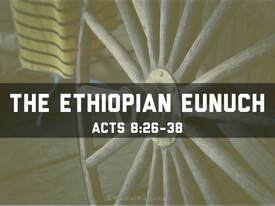
 ‘Do you understand what you are reading?’ Philip’s question in Acts of the Apostles chapter 8 is such a great one, and it echoes down the centuries. Do we understand what we are reading when we read scripture? Whether we are conservative or varying degrees of liberal, it is easy to think we do. But do we really? This question is one reason that we have a sermon, or homily, or, as this community likes to call it, a reflection, in worship. For, as the eunuch responds, how can we understand unless we have a guide? The alternative is just using scripture as a looking glass, reflecting only our own faces, hopes, fears, and presuppositions. Note well, a guide to scripture is not a simple giver of answers, and certainly not determinative for all times and places. For we continue to reflect on scripture, again and again, precisely because God’s living Word, capital ‘W’, is revealed in scripture but is not fixed within its small ‘w’ words. Rather, as the great biblical interpreters have always said, God’s living Word emerges out of scripture in the encounter of human beings with the text, as guided by one another, our contexts and our deep Tradition, through the power of the Holy Spirit, the ultimate guide and inspirator. This is crucial to recall, lest we are tempted to believe that scripture is too easily understood: whether over-exalted into an idol or a supposed instruction manual, as conservatives are sometimes drawn to do; or reduced to a mere item of intellectual curiosity or piece of cultural heritage, as progressives are inclined to do. Either way, that loses the real subversive power of faith which scripture can hold for us, particularly in stories such as of the Ethiopian eunuch: which, in my view, is one of the most subversive of all in scripture, not least in its queering dimensions…
0 Comments
 image: Kamala Bright on Unsplash image: Kamala Bright on Unsplash ‘Tell me the old, old story, when you have cause to fear.’ Yes? No? Maybe? How do you respond to that: and, more broadly, to faith, and God, in Jesus, as story? Many years ago, on the radio, one of the radical thinking clergy of the Church of England was asked about how they understood God. ‘God’, they said, ‘is the poem in which I live my life.’ Yes? No? Maybe? Does that resonate with you? Many people, secular and faith-based, would be quite dismissive. Stories, and poems not least, they would say, are typically fanciful and not factual, fabricated and too often false. Of course, that kind of response generally lacks self-awareness and is very narrow, and, often, quite ideological. Apart from not recognising that different expressions of life have their own characteristics and validity, they typically miss the way in which story, metaphor, and symbol, exist within all areas of knowledge. Science for example is full of different models, and ideas like evolution are themselves stories. Scientists are right in saying that life-giving stories are helped by empirical verification. Yet, without stories as such, it is impossible for human life and consciousness to exist. That is something that liberals and progressives, especially in faith spaces, have often missed. It is not enough to point out the weaknesses in a tired traditionalist story: whether that be about creation, sexuality, or anything else. Even more importantly, we also need to tell a new story. Populist politicians, like rabble-rousing religious preachers, know this well. Facts are malleable but stories, once established, persist: whether they are particular ways of understanding the body, the nation, the world, and, of course, God. All of us therefore have stories, conscious and unconscious, running through our heads: some of them planted there long ago, some of them picked up from the latest social media frenzy; some of them giving life-giving purpose to our lives, others providing scripts that limit us but which are hard to shake off. What then is our story?...  a possible future Sydney Town Hall square: artist's impression for City of Sydney a possible future Sydney Town Hall square: artist's impression for City of Sydney ‘People assume’, said the tenth Dr Who,[1] ‘that time is a strict progression of cause to effect, but *actually* from a non-linear, non-subjective viewpoint - it's more like a big ball of wibbly wobbly... time-y wimey... stuff.’ Isn’t that Time Lord right? Time is much more fascinating than we ordinarily think. In today’s Gospel reading we are in this respect challenged deeply. For we are called to choose not only to address what is valuable in past, present and future: in what we call chronological, or measurable, time, deriving from the Greek word ‘chronos’. Rather we are brought face to face with ‘kairos’, another Greek word which means the ‘right or critical’, or meaningful, time. Πεπλήρωται ὁ καιρὸς, are the key words in Greek in Mark chapter 1 verse 15: words often translated as ‘the time has been fulfilled’ (or ‘is ripe’ - for, as the verse continues, ‘the reign of God has drawn near, (repent) turn around and believe the good news’… 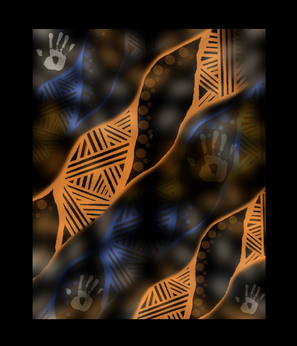 Interwoven Story-telling by Grace Williams (Community & Cultural Resource Officer, Leprena – UAICC Tasmania) Interwoven Story-telling by Grace Williams (Community & Cultural Resource Officer, Leprena – UAICC Tasmania) Twenty years ago now, I was working with the First Nations arm of the National Council of Churches, and was involved in organising a series of events called ‘Hearts are Burning’, each designed to re-ignite positive Christian engagement with First Nations people, and, above all, to help First Nations’ Christian voices to be heard. For the gifts of First Nations’ Christians are vital to any healthy futures for faith in these lands now known as Australia. As one of our keynote speakers back then, the late Aboriginal Bishop Jim Leftwich, would repeatedly, and strikingly, affirm, ‘the mission field has become the mission force.’ In other words, it is those who first received the Gospel in colonial, even imperial, form, who are typically now best equipped to speak genuine ‘good news’ in these lands today. That is part of why we mark today in the Uniting Church as the Aboriginal “Day of Mourning”: both to recognise the continuing impact of past imperial and settler colonial violence and also, crucially, to hear the voice of the Spirit speaking again today through First Nations peoples. It is therefore a huge delight to have Aunty Ali Golding with us again this morning, and, in a few moments, I want to hand over to her to offer her own reflections. For I do not intend to say too much myself this morning, except to share, very briefly, three questions which arise for me from our Gospel, as we mark this Day of Mourning… 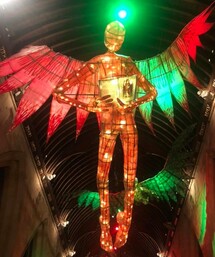 In essence, Christmas is quite a queer thing - don’t you think? I don’t really mean its added oddities, like the 19th century, mainly English, extras, like the carols we sing, and the 20th century, mainly American, extras, like the exaltation of Santa. Those are aspects of Christmas down under which are part of our eclectic multiculturalism, even if they partly reflect our settler colonial culture and tend to work better in the northern hemisphere. For we have more than a little work still to do in listening to the Spirit in these lands now called Australia, including turning many of Christmas traditional symbols upside down and inside out. But that is less of a challenge when we truly celebrate the queerness of Christmas, especially in its original, biblically recorded, forms. For the stories of Christ’s birth - God made flesh - are, like queerness, full of extraordinary features, and very difficult to pin down. Indeed, the very idea that God is made flesh was, and is, a horror to many people. That means that matter matters, and, not least, our bodies matter – and every little bit of them – and caring for one another and our planet matters, because ‘matter matters’ and everything shares in this divine matter. Meanwhile, the idea that God is born in, and with, marginal and outcast bodies still seems so absurd and objectionable to many. For the biblical stories and symbols present God’s queer love: the ultimately irresistible power of Love which overturns all the neat boxes and boundaries of our oppressive world, and its typical ways of thinking. So, rather than trying to straighten out Christmas, as many people try to do every year, I believe that we are far better simply to enjoy its very queer ride: which involves keep adding to the oddities of this time of year, with fresh joy and creativity; and letting its divine queerness shine in us… What’s in a name? - often, a huge amount. First Nations peoples are very clear about that and the intimate relationship between naming, language more widely, culture, identity and flourishing. Other oppressed peoples know this too. Hence the suppression or promotion of different languages is so vital an issue: just look, for example, at Wales, Catalonia, Belgium or Canada. It is not simply good manners to use the language people ask of us. It is because, unless we do so, we are disconnected from layers of meaning and identity, place and community, history and, indeed, geology. Take my surname: Inkpin. This has nothing to do with writing or being a scribe, or seamstress. It comes from two ancient British words: inga and pen. Inga, in modern English, means people. Pen means hill. This tells me, and others, that I come from the people of the hill, with all the deep layers of connection this entails: to particular soil and environment; to history and culture; to others, past, present and future. Indeed, even today, there are English villages, not surprisingly on hills, with the name Inkpen. For whilst much was swept away by the two great imperial invasions of my native land, there are still fragments of British indigeneity left, and one is my surname. It is a living reminder that there are other ways of being English, and British, than what is usually asserted: there are always were, and there always will be. For when we look more deeply, the living fragments of traditional cultures in every land call us both to recognition of pain and loss, and also to fresh pathways of justice. This is part of today’s Day of Mourning. We will not find peace unless we recognise what has happened in this land - and particularly in this city; unless we repent – and much more radically than we whitefellas have so far done; and unless, in Midnight Oil’s words earlier,[1] we ‘come on down’ to the makararrata place, ‘the campfire of humankind’, ‘the stomping ground.’…
Nade te turbe, Solo Dios, basta – nothing can trouble, God alone holds us
Our two readings today may appear quite dissimilar in tone and features. Some of us may be tempted to ‘like’ one and ‘dislike’ the other. Our ‘liking’ a passage or not is hardly the most important thing about its truth and value however. Faith is not Facebook or Twitter! In fact these two passages are really not so apart as they might seem theologically. Both, after all, are prophetic and speak of the assurance of God. They come from different eras: the first from after the devastation of the Exile; the second from the period of the Roman empire and its colonial destruction. Yet both speak a similar message: Solo Dios, basta. They also need each other: the somewhat idealistic imaginary of the first passage being balanced by the realism of the second. I feel, for example, that they are a little like the two wings of the climate crisis movement: one side singing a powerful lament and the other a new song of creative possibilities. Without singing both we are in trouble…  photo: by Ashin K Surash on Unsplash photo: by Ashin K Surash on Unsplash Today’s reading from Luke begins with the often-repeated phrase ‘don’t be afraid’. It is a phrase so often repeated that it has given me pause for thought this week. Do the Scriptures encourage us all the time not to be afraid, precisely because the people for whom they were written were in fact constantly afraid? They would have had good reason to be. As far as we can tell most early followers of Jesus were subject peoples living in occupied territory. The might of Rome was a constant threat, taxes were high, financial insecurity inevitable, and it was not as though they had the securities of modern medicine, analgesics, and antibiotics. Moreover, the expectation of Christ’s imminent return, coupled with an increasing impatience at its delay sounds an anxious apocalyptic note throughout the pages of the New Testament. But what about ourselves? Are we also afraid? Religion has after all for centuries traded in fear – fear of God’s punishment and condemnation, sweetened by the promise of salvation for those who truly believe, (some have called that ‘pie in the sky when you die’); treasures in heaven beyond the reach of moth, rust, and thieves – and after the last few months in Sydney I’d want to add mould! So, are we also afraid? This is an important question as we enter a period of considering our mission as a congregation. If we are afraid, what are we afraid of? – remembering that fear is not all bad. It is a great motivator to action. But the encouragement of the gospel is not to be afraid, but to act from a different place – a place where we don’t have supposed ‘treasures’ to defend; a place where we are set free from the need to control and secure; a place indeed as the letter to the Hebrews calls it, of faith... This is a well known but in some ways seriously annoying story, and I blame Luke – to say nothing of centuries of largely male, monastic interpretation - which can basically be summarised as ‘Hurrah Mary’ and ‘Boo Martha’. Or more aggressively as ‘stop complaining and pray harder’! Anyone out there feel like they’d like to muster at least a small cheer for Martha? Hurrah! This is a story that has been used as a means of social control in church and state, and a means of silencing the voices of women. For the very way this story is constructed, tends to make us choose sides. So, whether we are sympathising with Martha and feeling she’s a bit hard done by, or cheering Mary for breaking the gender stereotype, it is hard to remain neutral. The story itself sets up the two supposed sisters in opposition to one another...
Recently I was given a wonderful handmade doorstop. It was a gift from the main organiser of an event I spoke at in the Uniting Church’s Pilgrim College in Melbourne (see my address here and Talitha's own explanation here). We were marking the landmark first Australian university unit in Queer Theology, before the intensive which Penny and I were about to teach. As such, the doorstop was one fitting symbol of such developments, keeping open the possibilities of hearing the voice of God in contemporary culture, particularly in queer lives and spiritual experience, and enabling some of our collective old pain and exhaustions to leave and new joys and challenges to enter. It is however but one doorstop among many created by my colleague during the world’s longest COVID-19 lockdowns in Melbourne. For too many doors were closed at that time. Then and still now, she feels it is important to have practical symbols which keep alive horizons of hope and renew possibilities of life and relationship. In that sense, it is also perhaps one fitting pointer both to our Gospel story (Luke 10.25-38) and to the divine possibilities of Christian mission today. For, in a number of other ways, the parable of the so-called ‘Good’ Samaritan is actually quite impossible…
|
Authors
sermons and reflections from Penny Jones & Josephine Inkpin, a same gender married Anglican clergy couple serving with the Uniting Church in Sydney Archives
June 2024
Categories
All
|

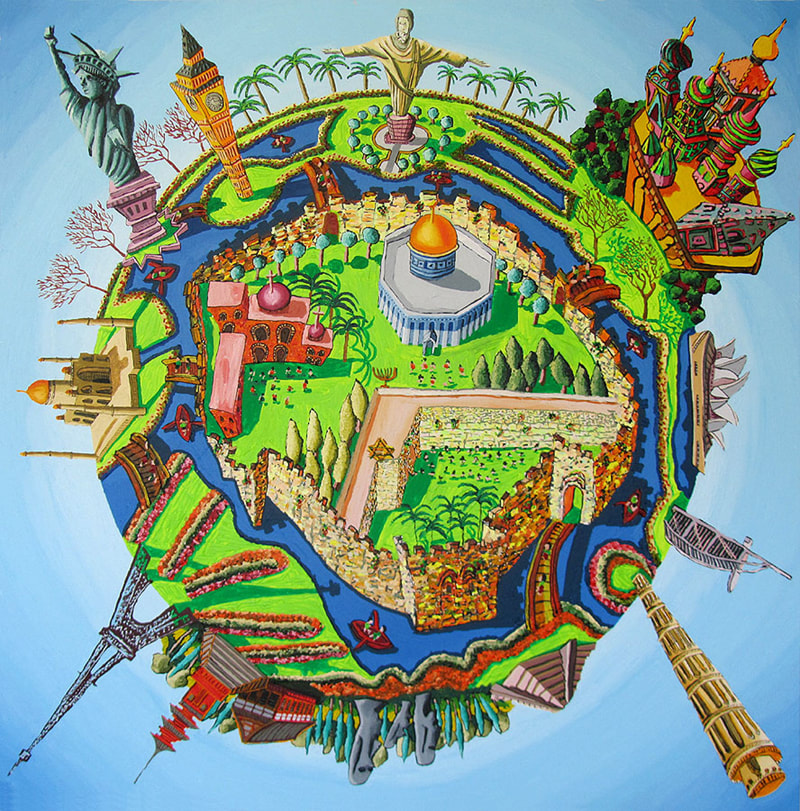
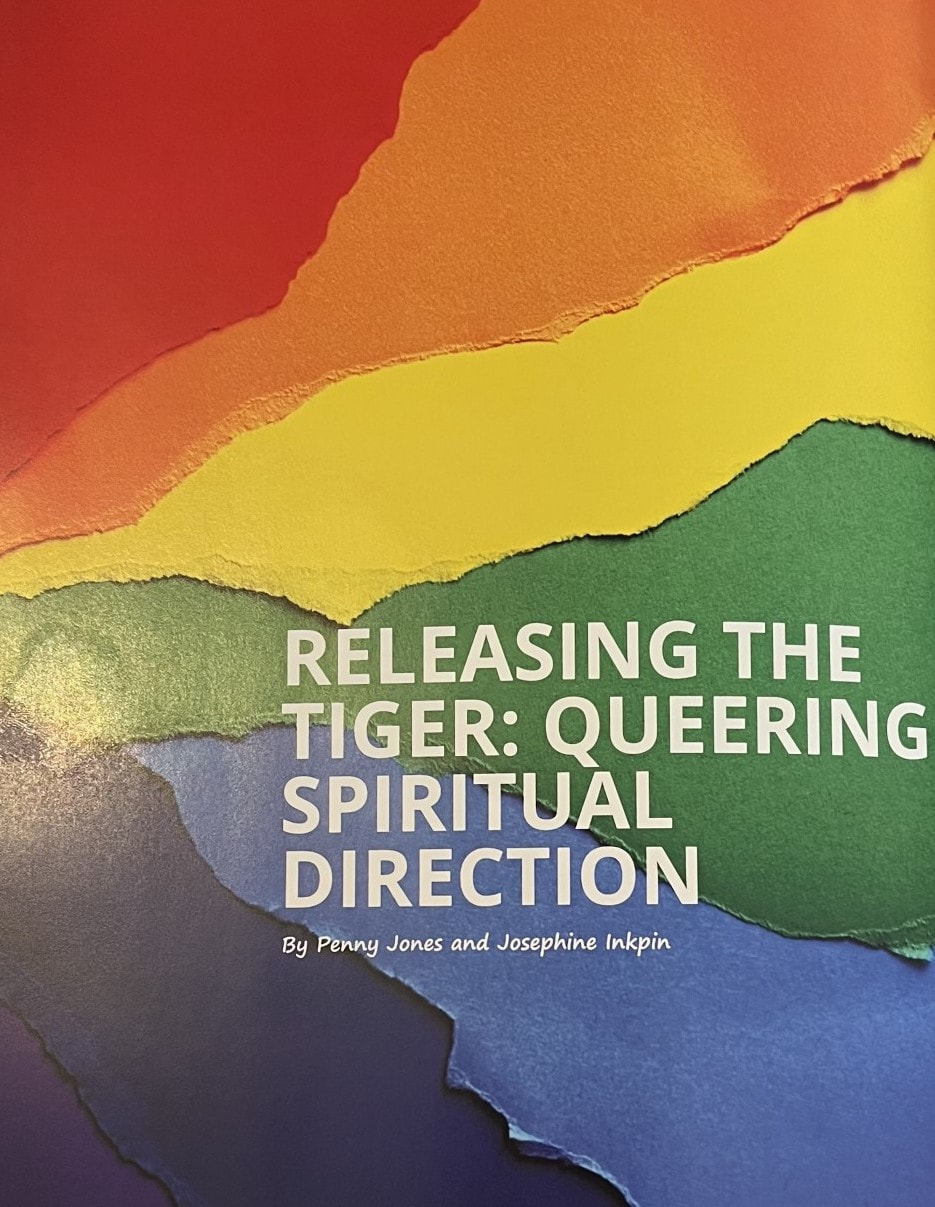

 RSS Feed
RSS Feed